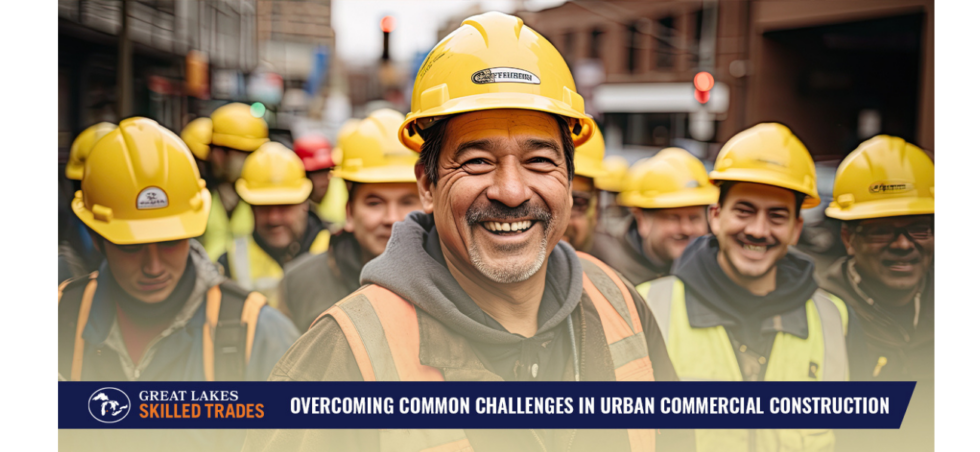Should you consider a career in the skilled trades?
Absolutely.
Why? One word: opportunity.
A generation of skilled tradespeople is nearing retirement—and there aren’t enough young people lined up to replace them. The construction industry is desperate for builders, plumbers, electricians, and others. Did you know that 3 million skilled trades jobs will go unfilled by 2028? A recent survey by the National Association of Home Builders showed that 69% of its members are already experiencing delays in completing projects on time due to a shortage of qualified workers.
Nowadays, most kids aspire to be social media influencers—or something else accomplished from behind a computer keyboard. A day trader. A banker in a corner office. Less grandly, a humble bureaucrat. Anything but turning a wrench for a living! Kids look at a blue-collar career as a second-class career—a consolation prize. Not surprisingly, just 5% of parents expect their kids to pursue jobs in the trades. “My son, the doctor!” they hope to brag to their peers—not, “My son the pipe fitter!”
So parents encourage kids to attend to the priciest four-year college they can get into and amass mountains of debt. The average bachelor’s degree is going to cost you more than $100,000. About two-thirds of students with bachelor’s degrees leave college with debt in excess of $26,000. Just imagine: You’re starting out, and you immediately have a $300 student loan payment—for a decade or more.
“We’ve defined success by the type of college degree you have. That’s absolutely wrong,” said Greg Sizemore, vice president of health, safety, environment and workplace development for Associated Builders and Contractors in Washington, D.C.
But can you earn a good living in the skilled trades?
The average carpenter salary is $56,000, according to Salary.com. The range for carpenters is $49,000 to $65,000. Granted, that’s not day trader territory, but it’s a salary you can raise a family on. It’s a comfortable living.
And a stable one. The skilled trades are not going away. We’ll always need people to keep the lights on and keep the water running, to build us houses to live in and roads to drive on.
“There’s a reason that during this pandemic, construction has been considered an essential industry,” ABC’s Sizemore said. “I love to say it this way: If your air conditioner doesn’t work on a hot August day in Anywhere, America, it doesn’t do you one bit of good if you have a Ph.D. or an MBA. The most important person in the world right at that moment bears the acronym HVAC.”
But will I be happy in a skilled trade?
When you work in the skilled trades, you work with your head, your heart—and your hands. You’re creating something tangible. You can see exactly what you’ve accomplished at the end of a day, and that feels great.
“You have the opportunity to go back and look at the things you built,” says Sizemore. “I can put my fingers on a building and say that I physically helped erect or maintain that building. There’s a pride in craftsmanship. That building’s going to last a lot longer than we are.”
And there are no worries about work/life balance. When you’re a skilled tradesperson, your schedule is your own.
“In construction, you create for yourself your own American dream,” said Sizemore. “You can work as much overtime as you want, or you can be strictly nine-to-five and go home to your family, be a soccer parent.”
Mastering a skill for a lifetime
The demand for carpenters, plumbers, electricians, and other construction-related roles is high and forecast to continue growing. Yet there aren’t enough qualified workers to fill these positions.
Maybe that’s where you come in.
“Construction has a value proposition that is net zero,” said Sizemore. “What I mean by that is that in most cases across America, there is such a significant demand for craft workers that contractors are willing to put you on their payroll and then educate you. And once you master a skill, you have it for life. You cannot forget it. You’re qualified to perform your skill—anywhere, anytime across America or around the world.”
What if you have no experience? Check out: How a general labor job can get you into the construction industry or Using temporary employment as a doorway into the construction industry or How to get a construction job if you don’t have much experience.
Once you get that first construction job: How to stand out on a construction site
What skilled trade is right for you? Consider these posts:
- Everything you need to know to become a welder
- Everything you need to know to become a plumber
- Everything you need to know to become an electrician
Women, don’t think the skilled trades aren’t for you: Why women make awesome skilled tradespeople
Was this blog post helpful for you? Why not subscribe to our blog? It’s free. Just input your name & email address below. We promise we won’t spam you. However, as our way of saying thanks for subscribing, we’ll send you our e-book, “4 Things to Consider When You’re Looking for a Temporary Staffing Firm.”
Subscribe








